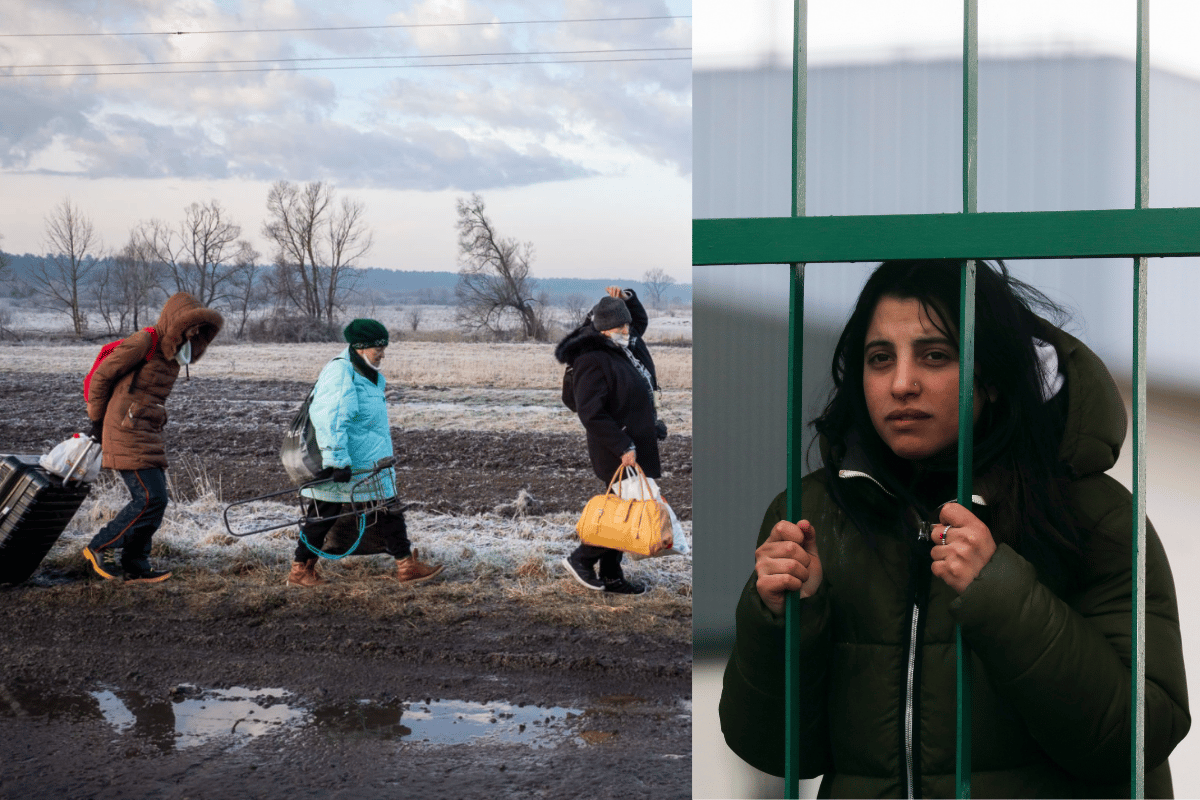
This post includes distressing imagery and could be triggering for some readers.
According to the UN's refugee agency, over half a million people have fled Ukraine since the Russian invasion began last week. But the angle that some commentators and media outlets have chosen to fixate on is the ethnicity of those fleeing; a focus on those who are "European", and "white" with "blue eyes and blonde hair".
Even the word "civilised" has been used to describe Ukrainian/European refugees. As if those who've fled wars in the Middle East or Africa, are "uncivilised" in comparison.
The highly problematic reporting has been called out by advocates, other journalists and leaders - but it's not an isolated transgression. It's happening multiple times a day, across multiple outlets.
Watch: Ukrainian apartment building hit in Kyiv. Post continues below.
On CBS News, one senior foreign correspondent who was reporting from Kyiv said in a piece to camera: "But this isn't a place, with all due respect, like Iraq or Afghanistan, that has seen conflict raging for decades. This is a relatively civilised, relatively European - I have to choose those words carefully, too - city, one where you wouldn't expect that or hope that it's going to happen."




























































































